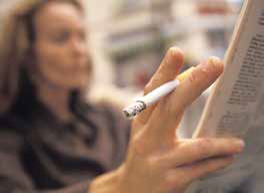
Smoking is linked to heart disease, stroke and several forms of cancer, but its effects on orthopedic surgery outcomes are less widely known. If you are scheduled for rotator cuff or labral surgery, chances are that your physician has emphasized the importance of not smoking before the surgery. This will not only improve your overall health but it will also improve your chances of the surgery’s success.
Surgeries to repair a torn rotator cuff or glenoid labrum tear are performed in individuals for whom more conservative treatments have been ineffective. The American Association of Orthopedic Surgeons has stated that smoking may be the single most important factor in postoperative complications. These complications can include
- poor wound healing
- infection
- less satisfactory final outcomes of surgery
The association reported on a study of 235 patients undergoing rotator cuff surgery that found good or excellent results in 84% of nonsmokers, but in only 35% of smokers.
In addition, a 2015 review in the American Journal of Sports Medicine found that rotator cuff surgery patients who smoked were significantly more likely to have decreased repair quality, decreased biomechanics, poorer clinical outcomes and impaired healing of tears. Among those undergoing glenoid labrum repairs, patients who smoked were more likely to need a surgical revision.
If you are about to undergo rotator cuff or glenoid labrum surgery, we will work with you and your physician to design a postsurgery physical therapy program that will help you build strength and regain motion. This will involve gentle range-of-motion exercises as you gradually increase strength and improve control of your arm. Depending on your surgery, it will probably take about four months before you are fully healed.
The recovery process moves more smoothly among nonsmokers or those who have recently quit smoking, so if you need an additional reason to quit, let this be it. And if you need help quitting, we can connect you with resources to help you in this important undertaking. We can also suggest lifestyle changes to keep the shoulder pain-free.









